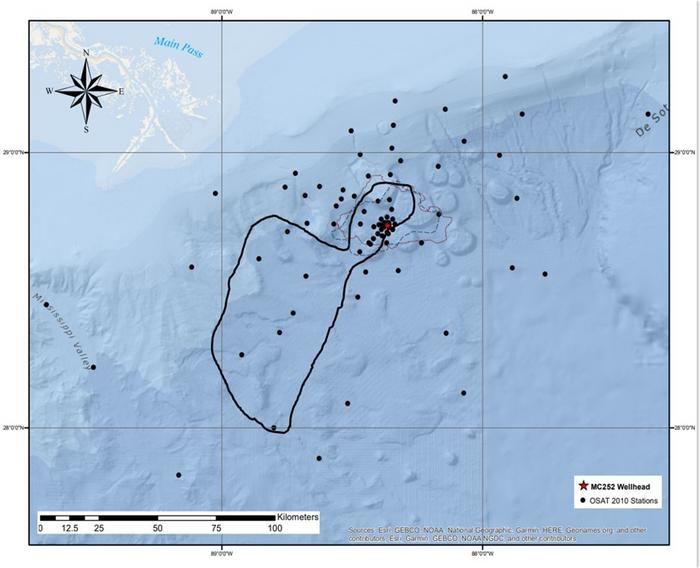A new peer-reviewed study found that the Deepwater Horizon (DWH) oil spill in 2010 harmed wildlife and their habitat in the Gulf of Mexico much more than previously known. The study was conducted by researchers from The University of Texas at Arlington, the University of Nevada, Reno, Mokwon University in Daejeon, Korea, and Texas A&M University at Corpus Christi.
“Overall, we found the area of deep-sea floor affected by the DWH spill was significantly larger than previously thought,” said Masoud Rostami, an author of the study and assistant professor of instruction in UTA’s Division of Data Science.
Deepwater Horizon Oil Spill: The Largest in U.S. History
The DWH oil spill, which started on April 20, 2010, was the largest marine oil spill in U.S. history. It released nearly 5 million barrels of crude oil and hydrocarbon gases over 87 days, with 3.2 million barrels of oil remaining in the water after cleanup efforts. The spill greatly exceeded the amount of natural oil that seeps into the Gulf each year, and up to 35% of the pollutants were trapped below the surface, severely impacting the lives and habitats of deep-sea plants, animals, and microorganisms.
To better understand the DWH spill’s effects on the deep-sea ecosystem, the researchers focused on harpacticoid copepods, a type of crustacean that lives near the bottom of the ocean. Copepods are good for this type of study because they live in several different deep-sea habitats and are known to be sensitive to pollution.
Advanced Methodologies Reveal Widespread Impact
Using advanced methodologies, including remote sensing, multivariate statistical analysis, and machine-learning approaches, the team detected subtle changes in the deep-sea copepod community composition. They found that the spill affected biodiversity over an area of 1,100 square miles, which is nearly nine times larger than earlier studies on DWH had shown.
“This study demonstrates that harpacticoid copepod diversity dramatically declined because of DWH oil pollution,” said Rostami.
The study was supported by BP, the National Oceanic and Atmospheric Administration, and the U.S. Department of Interior’s Deepwater Horizon National Resource Damage Assessment. It was published in Marine Pollution Bulletin on May 1, 2024.
If our reporting has informed or inspired you, please consider making a donation. Every contribution, no matter the size, empowers us to continue delivering accurate, engaging, and trustworthy science and medical news. Independent journalism requires time, effort, and resources—your support ensures we can keep uncovering the stories that matter most to you.
Join us in making knowledge accessible and impactful. Thank you for standing with us!

